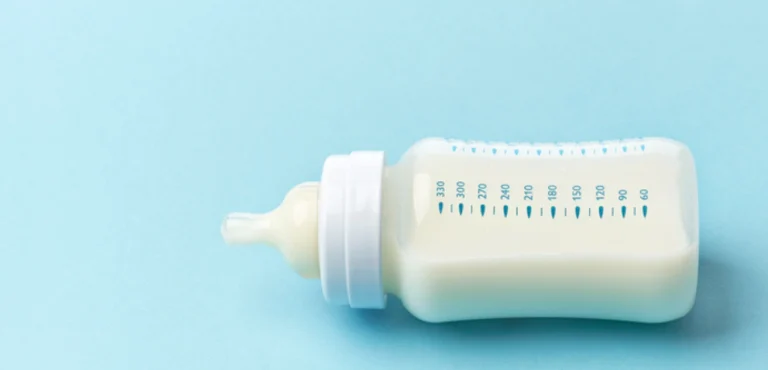Optimizing Caffeine Use: A Science-Based Guide to Better Performance
Optimizing Caffeine Use for Mental and Physical Performance: A Science-Based Guide
Caffeine is one of the most widely consumed psychoactive substances in Canada, with Health Canada reporting that 87% of Canadians consume it daily through coffee, tea, or other sources. From morning coffee rituals to pre-workout supplements, caffeine plays a significant role in how many people approach their daily tasks and athletic pursuits.
The use of caffeine for performance enhancement dates back centuries, with documented use in athletic competition since the early 1900s. Today, research shows that proper caffeine usage can support both cognitive function and physical performance when used appropriately. According to the Canadian Society for Exercise Physiology, moderate caffeine intake can improve alertness, reaction time, and exercise performance in many individuals.
However, optimal caffeine use requires understanding its effects, timing, and personal tolerance. Many Canadians unknowingly consume caffeine in ways that may reduce its benefits or lead to unwanted side effects. Health Canada guidelines suggest that healthy adults should limit intake to 400mg per day – roughly the amount in 3 small cups of coffee.
This guide examines evidence-based strategies for using caffeine effectively, including proper dosing, timing, and consideration of individual factors that influence its effects. We’ll explore how to maximize benefits while minimizing potential drawbacks through practical, research-supported approaches.
Understanding How Caffeine Works in Your Body
Caffeine is one of the most widely consumed substances in Canada, with Statistics Canada reporting that 85% of adults consume it daily. Understanding how this compound affects your body can help you make informed decisions about your caffeine intake.
The Science Behind Caffeine’s Effects
Caffeine primarily works by blocking adenosine, a natural compound that builds up in your brain throughout the day and makes you feel tired. When caffeine molecules attach to adenosine receptors, they prevent adenosine from binding, helping you feel more alert and focused.
Absorption and Metabolism
Your body typically absorbs caffeine within 45 minutes of consumption, with peak blood levels occurring around 15-120 minutes after intake. The speed of absorption varies based on:
- The form of caffeine consumed (liquid vs. solid)
- Whether you’ve eaten recently
- Individual metabolism rates
Common Sources and Their Impact
Different caffeine sources affect your body differently:
- Coffee: Contains additional compounds that can influence energy levels
- Tea: Provides L-theanine, which can moderate caffeine’s effects
- Energy drinks: Often combine caffeine with sugar and other stimulants
- Supplements: Typically offer more precise dosing but may lack beneficial compounds found in natural sources
Individual Variation
Your response to caffeine depends on several factors:
- Genetic differences in caffeine metabolism
- Age and body weight
- Overall health status
- Tolerance level
- Time of day consumed
Effects on Body Systems
Caffeine influences multiple body systems:
- Nervous system: Increased alertness and reaction time
- Cardiovascular: Temporary rise in heart rate and blood pressure
- Digestive: Can increase acid production and metabolism
- Muscular: May enhance physical performance and reduce fatigue
- Endocrine: Can affect hormone levels and stress response
According to Health Canada guidelines, most adults can safely consume up to 400mg of caffeine daily. However, some individuals may need to limit their intake based on personal sensitivity or medical conditions. If you experience anxiety, sleep problems, or irregular heartbeat after caffeine consumption, consider discussing your intake with your healthcare provider.
Risk Factors and Prevention: Understanding Safe Caffeine Use
Common Side Effects and Individual Variation
According to Health Canada, common caffeine side effects include anxiety, insomnia, increased heart rate, and digestive issues. Research shows that approximately 10% of Canadians experience significant caffeine sensitivity. Signs of overconsumption may include tremors, restlessness, and irregular heartbeat.
Genetic Factors and Metabolism
Your genes play a crucial role in how quickly you process caffeine. CYP1A2, the primary enzyme responsible for caffeine metabolism, varies significantly among individuals. Some people process caffeine up to four times faster than others, affecting both benefits and side effects. If you notice prolonged effects from caffeine, you may be a “slow metabolizer.”
Medication and Supplement Interactions
Caffeine can interact with several common medications and supplements:
- Certain antibiotics may slow caffeine metabolism
- Birth control pills can double caffeine’s half-life
- Some anxiety and depression medications may increase sensitivity
- Iron supplements should be taken separately from caffeine-containing beverages
Always discuss caffeine consumption with your healthcare provider when starting new medications.
Sleep Quality and Recovery
Regular caffeine consumption after 2 PM can disrupt sleep patterns. Health Canada recommends avoiding caffeine at least 6 hours before bedtime. Poor sleep quality can lead to increased caffeine dependence, creating a cycle that’s difficult to break.
Managing Caffeine Sensitivity
Common signs of caffeine sensitivity include:
- Jitters or anxiety after small amounts
- Difficulty sleeping even with morning-only consumption
- Persistent digestive issues
- Headaches or increased blood pressure
Preventing Tolerance and Dependency
To maintain caffeine’s effectiveness while minimizing risks:
- Limit daily intake to 400mg for adults (about 3-4 cups of coffee)
- Take regular breaks from caffeine consumption
- Stay hydrated with water throughout the day
- Consider a two-week reset if effectiveness diminishes
- Track consumption using a food diary or health app
If you experience persistent side effects or concerns about caffeine consumption, consult your primary care provider. They can help evaluate your individual risk factors and develop a personalized approach to caffeine consumption that aligns with your health goals and sensitivity level.
Management Strategies and Self-Care for Caffeine Use
Optimal Dosing Guidelines
Research suggests that caffeine intake should be personalized based on body weight. The recommended range is 3-6mg per kilogram of body weight per day. For a 70kg adult, this translates to 210-420mg of caffeine. Start with lower doses (around 2mg/kg) to assess your tolerance. A standard cup of filter coffee contains approximately 95-200mg of caffeine, while green tea typically provides 25-35mg per cup.
Timing for Peak Performance
Caffeine reaches peak blood levels 30-60 minutes after consumption. For morning alertness, consume caffeine 30 minutes before needed peak performance. For athletic activities, research indicates optimal timing is 45-60 minutes before exercise. Avoid caffeine intake after 2:00 PM to prevent sleep disruption, as caffeine’s half-life is approximately 5 hours.
Preventing Tolerance
To maintain caffeine’s effectiveness, consider implementing a cycling protocol:
- Use caffeine strategically for 3 weeks
- Take a 1-week break to reset tolerance
- During breaks, gradually reduce intake to minimize withdrawal symptoms
- Stay hydrated with 2-3 liters of water daily during cycling periods
Hydration and Nutrition Considerations
Balance caffeine intake with proper hydration:
- Drink one glass of water for every caffeinated beverage
- Maintain regular meal times to stabilize blood sugar
- Include protein-rich foods to moderate caffeine absorption
- Consider magnesium-rich foods (leafy greens, nuts) to support energy metabolism
Sleep Optimization
Protect sleep quality while using caffeine:
- Establish a caffeine curfew 8 hours before bedtime
- Maintain consistent sleep and wake times
- Create a relaxing bedtime routine
- Dim lights and avoid screens 1-2 hours before sleep
- Aim for 7-9 hours of sleep per night
Task-Specific Protocols
For Cognitive Tasks:
- Start with 100-200mg caffeine
- Space doses 4-6 hours apart
- Combine with short breaks every 90 minutes
- Stay hydrated with water throughout the day
For Athletic Performance:
- Consume 200-400mg caffeine pre-workout
- Time intake 45-60 minutes before exercise
- Consider carbohydrate timing with caffeine
- Monitor heart rate response
Monitoring and Adjusting
Track your caffeine response:
- Keep a daily log of intake amounts and times
- Note energy levels throughout the day
- Record sleep quality and duration
- Document any side effects
- Adjust dosage based on personal response
When to Seek Medical Advice
Consult a healthcare provider if experiencing:
- Heart palpitations or irregular heartbeat
- Anxiety or panic symptoms
- Persistent sleep problems
- Stomach issues or acid reflux
- High blood pressure concerns
Remember that individual caffeine sensitivity varies significantly. Start with lower doses and adjust based on your personal response. If you have underlying health conditions or take medications, discuss caffeine use with your healthcare provider to ensure safe consumption patterns.
When to Seek Professional Care
While caffeine can support mental and physical performance when used appropriately, certain symptoms warrant medical attention. Contact your healthcare provider if you experience:
Signs of Overconsumption
- Heart palpitations or irregular heartbeat
- Severe anxiety or panic attacks
- Persistent tremors or muscle twitches
- Chest pain
- Difficulty breathing
- Severe headaches that worsen with caffeine use
Medical Conditions Requiring Special Attention
Consult your healthcare provider about caffeine use if you have:
- Heart conditions or high blood pressure
- Anxiety disorders
- Sleep disorders
- Gastroesophageal reflux disease (GERD)
- Pregnancy or planning to become pregnant
- Medication interactions, particularly with certain antidepressants
Sleep-Related Concerns
Seek professional guidance if you experience:
- Persistent insomnia despite reducing caffeine intake
- Difficulty falling asleep more than 3 nights per week
- Daytime fatigue affecting daily activities
- Sleep problems affecting work or school performance
Performance Optimization
Consider professional consultation for:
- Developing a personalized caffeine strategy for athletic training
- Managing caffeine intake during shift work
- Addressing caffeine dependency concerns
- Creating a balanced energy management plan
According to Health Canada guidelines, healthy adults should limit caffeine intake to 400mg daily. If you’re unsure about your caffeine consumption or experiencing concerning symptoms, schedule an appointment with your primary care provider for personalized guidance and monitoring.
Conclusion
Optimizing caffeine intake requires a thoughtful, individualized approach based on your unique physiology and lifestyle needs. Research shows that moderate caffeine consumption (up to 400mg daily for most healthy adults, per Health Canada guidelines) can support mental alertness and physical performance when used strategically. Key optimization strategies include timing consumption based on your circadian rhythm, staying within recommended daily limits, and being mindful of tolerance development.
While caffeine research continues to evolve, particularly in areas of genetic differences in metabolism and long-term health impacts, current evidence supports its safe use as part of a balanced lifestyle. Consider tracking your caffeine intake and response using a diary or health app to identify your personal sweet spot.
For safe consumption, start with lower doses, avoid caffeine late in the day, stay hydrated, and discuss any concerns with your healthcare provider, especially if you have underlying health conditions or take medications. Remember that good sleep, nutrition, and exercise remain the foundations of sustainable energy management.
Book Your Appointment Today – Less Wait Time, More Face Time
Visit www.careand.ca to register
Contact Information:
📞 Phone: +1-647-951-4770
📧 Email: helpdesk@careand.ca
🌐 Website: www.careand.ca
Disclaimer:
This article is for informational purposes only and does not constitute medical advice. Always consult with a qualified healthcare provider for personal medical guidance. The information provided is general in nature and may not apply to individual circumstances.







